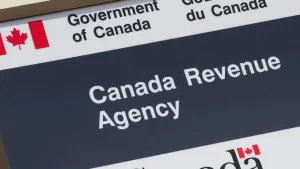When you’re focused on your medical/dental career, income taxes may not be top of mind, but you don’t want to miss out on tax planning for your high net worth future career, tax credits and deductions for Medical Residents that could save you money when you file your return.
Tax credits or deductions for Medical Residents
1. Educational expenses
As a current or recent med/dental student, one of your best tax opportunities is likely to be associated with your educational expenses.
- Deduction for interest paid on student loans. You may be able to deduct the interest paid on your student loans for the past five years if the loans came from the Canada Student Loans Act, the Canada Student Financial Assistance Act, or the Apprentice Loans Act. If you have no tax payable for the year the interest is paid, you can carry the interest forward and apply it on your return for any of the next 5 years.
- Tax credits on tuition and fees. You may be eligible for tuition tax credits, which may offer a bigger benefit than a deduction because the credit can be taken against your total tax bill. Canada has federal tuition benefits, and some provinces also have tuition tax credits to reduce your bill further. You should receive a tuition and enrollment certificate from your educational institution with information about your tuition payments and taxes. If you don’t have much taxable income — or any taxable income — you may be able to transfer your tuition tax credits to someone who supports you, such as your parents, grandparents or spouse.
- Tax credits for fees and dues. You may also be eligible for a tax credit for exam fees for licensing and for professional association dues. For medical residents, annual dues for membership in medical associations or the college of physicians and surgeons and malpractice liability insurance premiums are generally deductible.
Keep in mind that if you received scholarships, the amount you can deduct for tuition or other expenses may be impacted.
2. Moving costs
If you moved at least 40 kilometers from your former home to attend med/dental school full-time — or to start your residency — you may be able to deduct your moving expenses (including travel expenses, transportation and storage costs). See the list of eligible moving expenses.
3. Family costs
If you have dependents — children, parents, grandparents or other relatives like brothers and sisters under 18 — who live with you or rely on your financial support, you may also be able to take a tax deduction for them. There are eligibility requirements for dependents you can find on the CRA site.
Whether you’re a med/dental student or a resident, you may also be eligible to deduct some childcare expenses as long as they are paid to an individual who’s not related to you, a daycare center, an educational institution or a camp.
4. Medical expenses not paid by your insurance company
You may be able to claim a tax deduction for medical expenses not paid by your insurance company. The Canada Revenue Agency has a long list of medical expenses you might be able to deduct, including drugs and medications, medical devices, treatment and surgeries. It also provides information about how to claim eligible expenses and whether you need a prescription to take the deduction.
5. Homebuyer tax credit
If you bought your first home, you may be eligible to claim a federal non-refundable home buyers’ amount and enjoy a tax credit of up to $750.
For more advice on managing your finances during med/dental school or as you work as a resident, talk to Abdullah CPA and see how he can help you.






